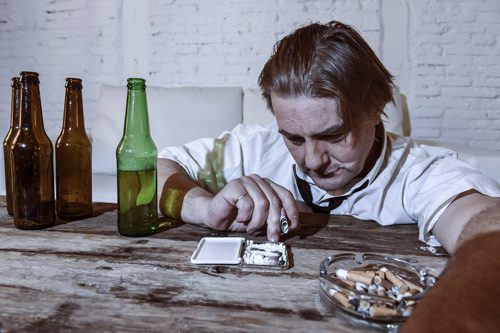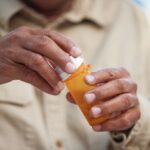What Is Polysubstance Abuse?
 Polysubstance abuse occurs when a person is dependent on two or more substances or groups of substances. In some cases, individuals use two or more drugs at the same time or are addicted to or dependent on multiple drugs. Others take a drug to counteract the side effects of one they previously used.
Polysubstance abuse occurs when a person is dependent on two or more substances or groups of substances. In some cases, individuals use two or more drugs at the same time or are addicted to or dependent on multiple drugs. Others take a drug to counteract the side effects of one they previously used.
Many people diagnosed with polysubstance abuse do not have a particular preference for a specific type of drug. They are addicted to the high feeling, the mood, and mind-altering effects the drugs produce.
Common Combinations of Polysubstance Abuse
Some polysubstance use occurs unintentionally, as when someone drinks alcohol while also taking a prescription anxiety medication. Others may take prescribed medications from different doctors, not realizing the effects the two substances have on one another.
However, in most cases the term refers to the intentional combination of substances in order to feel the effects, which may include:
- A higher “high” or greater euphoria
- A reduction in pain
- A reduction in unwanted side effects of a drug
- Help with insomnia and other sleep problems
Alcohol can be combined with both prescription and illicit drugs. It is commonly taken with painkillers, cocaine, heroin, and ecstasy. Although alcohol is a popular choice in polysubstance abuse, any addictive drug can be part of a drug combination. Benzodiazepines, amphetamines, and opiates are types of drugs commonly used in combination. Several other drugs often used in polysubstance abuse include:
- Marijuana
- Hallucinogens
- Amyl nitrate combinations, like poppers
- Synthetic drugs, such as bath salts, gravel, and spice/K2
- Inhalants
- Designer drugs like MDMA, Molly, Ecstasy, MDA
According to the National Institute of Drug Abuse, mixing alcohol and prescription drugs can result in blackouts, alcohol poisoning, respiratory depression, and death.
Slang Terms for Drug Combinations
Candy flipping, chasing the dragon, speedball, A-bomb, kitty boosting, hugs and kisses, and screwball are a few of the dozens of slang terms used for popular drug cocktails. Each of the substance combinations is taken to bring about a specific high and sensations.
The Dangers of Polysubstance Abuse
There are both short-term and long-term side effects related to polysubstance abuse. They differ based on the combination of substances used. However, several common dangers are associated with polysubstance abuse.
- Increased Severity of Side Effects
When two or more drugs are taken together, the side effects of each drug increase exponentially, and the addictive effects also increase. The side effects are often more severe than the effects of each drug separately. Some drug combinations can be life-threatening. - Risk of Overdose
Combining two or more substances increases the risk of an overdose. This is especially true for people who take the drugs on a regular basis or are experimenting with unfamiliar drugs. Illicit drugs are often mixed with unknown substances or fentanyl. Sometimes one drug covers up the effects of the other. The user could take a higher dose than normal while trying to achieve the effect they want, resulting in an overdose. If an overdose is not immediately treated, it could cause permanent brain damage or be fatal. - Increased Substance Toxicity
Drugs taken close to the same time can interact and cause increased toxicity. Because of this, a large number of medical emergencies are due to polysubstance abuse. If an individual mixes drugs for an extended period of time, they expose their body to toxins that may result in a heart attack, liver disease, or hepatitis C.
Do You Need Help?
If you or a loved one struggles with polysubstance abuse or addiction to drugs or alcohol, help is available. Call and speak to a caring professional at English Mountain Recovery, located in the beautiful Smoky Mountains of Tennessee. Find out how you can begin your journey to living a sober life.
 Are you or a loved one searching for Tennessee heroin treatment? To learn more about programs offered at English Mountain Recovery, call and speak with someone today at (877) 615-8569. We are ready to help you or your loved one recover.
Are you or a loved one searching for Tennessee heroin treatment? To learn more about programs offered at English Mountain Recovery, call and speak with someone today at (877) 615-8569. We are ready to help you or your loved one recover.About the Author: 
Terry Hurley is a retired educational professional and freelance writer with more than fifty years of experience. A former reading specialist and learning center director, Terry loved her years working with children in the educational field. She has written extensively for print and online publications specializing in education and health issues. For the last six years, her writing focus has been on addiction and mental health issues.




